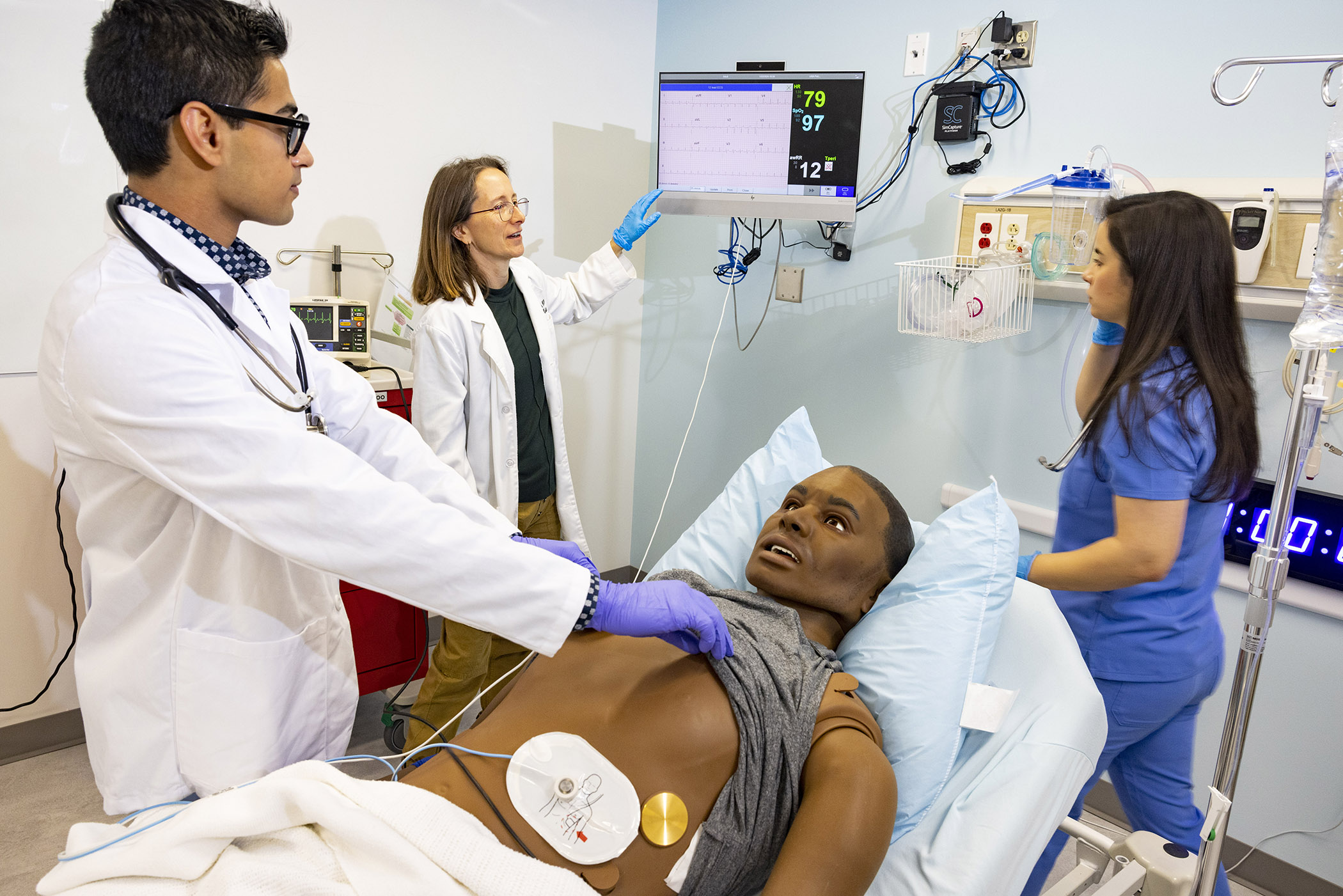The University of Georgia’s School of Medicine will generate between $1.8 billion and $2.3 billion in cumulative economic impact on the state of Georgia by 2040, according to an analysis conducted by the nationally recognized consulting firm Tripp Umbach. The report emphasizes improvements to health care, research expansion and job creation across the state as the main drivers of economic return.
“We are excited about the anticipated economic benefits to the state of Georgia from UGA’s new School of Medicine,” said UGA President Jere W. Morehead. “The medical education we provide and the life-saving discoveries we produce will not only improve health but also generate an outstanding return on investment for state resources.”
One of the most significant impacts of the school will be the expansion of health care access. Between 354 and 424 (50-60%) of the anticipated 708 graduates in the years 2030 to 2037 are expected to remain in Georgia to practice, according to the report’s estimates. These additional physicians are projected to generate up to $932.8 million in economic activity, create more than 5,700 jobs and provide up to $34.7 million in state and local tax revenue by 2040.
Georgia is the eighth-largest state in the nation by population, but it currently ranks 40th in the nation for the number of active patient care physicians per capita. Of the total number of physicians who remain in Georgia to practice, approximately one-third will specialize in primary care. Their medical practices alone will lead to health care cost savings between $255.6 million and $457.2 million, according to the report’s estimates.
These savings will be realized through early detection and treatment of diseases, better management of chronic diseases and a reduced reliance on costly emergency and specialist care, according to the report.
“Too many Georgians face barriers in accessing high-quality health care,” said UGA School of Medicine Founding Dean Shelley Nuss. “Nine counties in our state have no doctor at all, affecting one in 10 Georgians. The School of Medicine will help advance the health of our communities and address Georgia’s unmet health needs.”
The medical school also will have a significant impact on research, as clinicians and medical researchers will have access to UGA’s extensive research infrastructure.
At $89.5 million in fiscal year 2023, the University of Georgia had the highest amount of annual funding from the National Institutes of Health among all public universities without a medical school. With the addition of the medical school, the report estimates that NIH funding will increase between $179.3 million and $239.1 million by 2040. This increase, in turn, will result in a total economic impact of $412.5 million and $550 million from research alone to the state’s economy.
The report indicates that by 2040, the University of Georgia School of Medicine will generate $397.3 million every year through its operations, most of which will come from job creation. The report further estimates that the School of Medicine will support 953 direct jobs and 1,695 indirect jobs statewide by 2040.
Direct jobs are the full- and part-time jobs supported by the school itself, while indirect jobs include support services, vendors, contractors, hotels, retail establishments and visitors to the medical school.
“We believe this transformative medical education and research program will advance physical and economic health throughout Georgia,” said Paul Umbach, president and founder of Tripp Umbach. “Our confidence in the economic impact analysis is supported by UGA’s 15 years of experience as a partner campus with the Medical College of Georgia and its movement to a separate integrated program within a top-tier public university.”
The UGA School of Medicine is located on UGA’s Health Sciences Campus, where physicians have been training since 2010 under the Augusta University/University of Georgia Medical Partnership.
Many of the required facilities for an independent medical school already exist thanks to the development of this partnership. But the medical school also will benefit from a new medical education and research building, which will feature medical simulation suites, standardized patient rooms, clinical skills labs, a gross anatomy lab and a medical library. The building also will feature student support spaces such as conference rooms, study spaces, lounges, and faculty and staff offices dedicated to student support.
The proposed building will measure approximately 92,000 square feet, with roughly 67,000 square feet dedicated to medical education and 25,000 square feet reserved for biomedical research laboratories.
Following the recommendation of Gov. Brian Kemp, the Georgia General Assembly passed a fiscal year 2024 amended budget that included $50 million in funding for the $100 million facility, which is being matched by private funds from the UGA Foundation, the UGA Research Foundation, and UGA alumni and friends.
The University System of Georgia Board of Regents authorized the University of Georgia to establish a new independent School of Medicine in February 2024.



